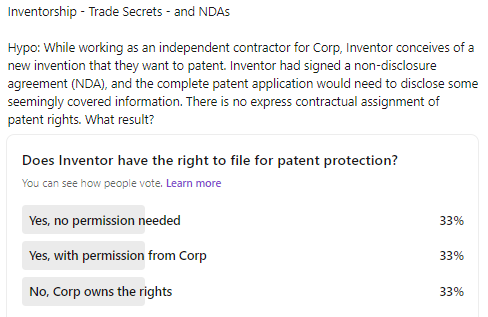by Dennis Crouch
The newest patent-focused petition for writ of certiorari to the Supreme Court was recently filed by Zebra Technologies, challenging the Federal Circuit's determination that the a patentee had standing to sue for infringement even though a third party separately held rights to assign, license, and enforce patent rights.
The case offers an increasingly common situation in patent litigation finance where the litigation funder is seeking legal assurances and collateral rights, but where those rights potentially risk stripping the patent owner from the exclusionary rights necessary to establish standing.
To continue reading, become a Patently-O member. Already a member? Simply log in to access the full post.
